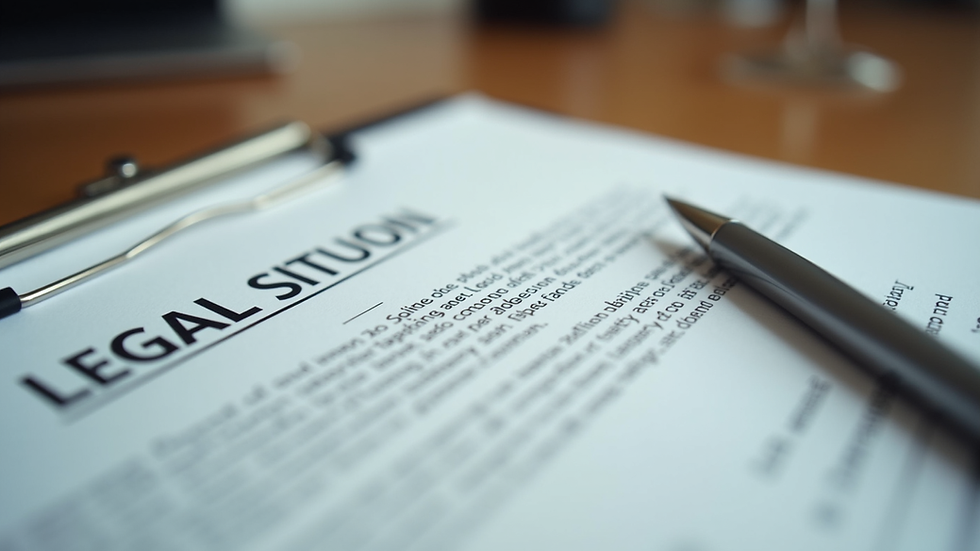Steps for Claiming an Inheritance Tax (IHT) Refund
- Steve Bish

- Jul 23, 2025
- 4 min read
To claim an inheritance tax refund, typically due to overpayment caused by assets (like property or shares) being sold for less than their valued amount at the time of death or due to unclaimed reliefs, follow these steps:
1. Determine Eligibility: Confirm you’ve overpaid IHT, often because:
· A property was sold for less than its probate valuation within four years of the deceased’s death (Loss on Sale of Land relief, per Section 191(1) of the Inheritance Tax Act 1984). The sale price must be at least £1,000 or 5% lower than the probate value, whichever is lower.
· Qualifying investments or shares were sold at a loss within 12 months of death.
· Reliefs (e.g., Business Relief, unused spouse/civil partner allowances, or taper relief for gifts made 3–7 years before death) were not initially claimed.
· An error by HMRC or another government department caused overpayment (Extra-statutory Concession B41, applicable in rare cases).
2. Gather Required Information: Collect details about the estate and the overpayment, including:
· The deceased’s full legal name and date of death.
· The original probate valuation of the estate and assets.
· Details of the asset sale (e.g., property or shares), including sale price and date.
· Evidence of unclaimed reliefs or exemptions, if applicable.
· The IHT reference number or payment details.
3. Complete the Appropriate Form:
· For property sold at a loss, use Form IHT38 (Loss on Sale of Land).
· For shares or investments sold at a loss, use Form IHT35.
· For general IHT overpayment (e.g., due to reliefs or errors), use Form IHT400 with relevant schedules (e.g., IHT402 for unused spouse allowances).
· If claiming under Extra-statutory Concession B41, write a letter to HMRC explaining the error and providing evidence.
4. Submit the Claim to HMRC:
· Send the completed form(s) or letter to HMRC’s Inheritance Tax Team (address: HM Revenue and Customs, Inheritance Tax Team, BX9 1HT).
· Ensure the claim is made within four years from the date of death for property-related refunds or within the relevant time limit for other claims (e.g., 12 months for shares).
· For overpayment relief (e.g., errors in a tax return after the amendment deadline), submit within four years from the end of the relevant tax year.
5. Await Processing:
· HMRC typically processes IHT38 forms in about 12 weeks, though delays can occur, especially for complex cases or during backlogs.
· If approved, HMRC will confirm the refund amount and any interest owed (calculated at 3.5% from the date of overpayment to repayment).
6. Follow Up if Delayed:
· If there’s no response within expected timelines, contact HMRC at 0300 123 1072 or via their online services. Persistent delays may require escalation, as some claimants report waiting months due to system backlogs.
Documents Needed
To support an IHT refund claim, you’ll typically need:
IHT400 Form (and relevant schedules, e.g., IHT402 for spouse allowances or IHT38 for property).
Probate Valuation Documents: Showing the estate’s value at the time of death.
Sale Documents: Contracts or evidence of the sale price and date for properties or shares (e.g., conveyancing documents, share sale receipts).
Asset Valuations: Professional appraisals for properties or market rates for investments at the time of death and sale.
Lifetime Gift Records: If claiming taper relief for gifts made 3–7 years before death.
Bank Statements or Payment Records: To verify IHT payments made.
Evidence of Errors: For claims under Extra-statutory Concession B41, provide clear proof of HMRC or government error.
Personal Details: Deceased’s name, date of death, and IHT reference number. -Failling to provide all required documents or submitting inaccurate information can lead to delays or rejection of the claim.
How the Refund Is Paid
Direct Bank Transfer: If you provide bank details (account name, number, and sort code) in your claim, HMRC typically pays the refund via BACS to your nominated account, usually within 5 working days after approval.
Cheque: If no bank details are provided or if HMRC cannot process a direct transfer, a cheque is sent by post, which can take up to 6 weeks.
Offset Against Liabilities: If there are outstanding tax liabilities, HMRC may offset the refund against those instead of issuing a payment.
Interest: HMRC pays interest on overpaid IHT at 3.5%, calculated from the date of overpayment to the repayment date.
Increase in Refund Claims Over the Last 3 Years
Yes, there has been a significant increase in IHT refund claims over the last three years (2022–2025):
Data: According to NFU Mutual’s Freedom of Information request, 18,000+ IHT refund claims were submitted between April 2022 and April 2025, with 12,915 related to property sales. Property-related reclaims surged by 65% from the tax year ending April 2023 to April 2025. In 2023/24 alone, 7,000+ reclaims were filed, a 38% increase from the previous year, with nearly 5,000 tied to property sales.
Historical Context: This follows a trend from earlier years, with claims rising from 2,177 in 2016–17 to 4,516 in 2018–19, driven by growing awareness and market conditions.
Reasons for the Increase
· Housing Market Volatility: A slowdown in the UK housing market, particularly in 2023, led to properties selling for less than their probate valuations due to a post-pandemic slump. This made more estates eligible for Loss on Sale of Land relief.
· Rising Property Prices: Despite the slump, long-term property price increases have pushed more estates above the £325,000 IHT threshold (or £500,000 with residence nil-rate band), increasing IHT liabilities and subsequent refund claims when sales occur at lower values.
· Frozen IHT Thresholds: The IHT nil-rate band (£325,000) and residence nil-rate band (£175,000) have remained unchanged, causing more estates to incur IHT as asset values rise, leading to higher overpayments when assets are sold at a loss.
· Increased Awareness: More executors are becoming aware of refund opportunities, particularly for property and share sales, due to publicity and professional advice.
· Market Volatility for Shares: Declines in share or investment values within 12 months of death have prompted claims for IHT35 refunds, with 5,096 such claims over the three-year period.
· Economic Uncertainty: Post-pandemic economic shifts and volatile markets (e.g., property and stock markets) have led to more assets being sold at a loss compared to their death valuation.
· Probate Delays: Long probate delays mean IHT is often paid based on estimated valuations before assets are sold, increasing the likelihood of overpayment if market values drop.
%20(750%20%C3%97%20250px)(2).png)





Comments